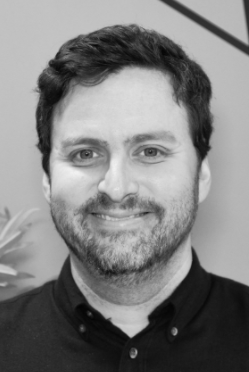Stop trying to look for a ‘good fit’: we need diversity of personality in media

Too often we make a connection between someone’s personality and their professional capability. This is a dangerous route to unconscious bias.
There’s a particular issue burning a hole in my conscience. It has come after a LinkedIn post I wrote after a mixed 48-hour period and a real professional paradox.
On the one hand, I got a certificate which proves tenure and experience. It will take pride of place on my office wall. A qualified professional on paper, literally.
On the other, however, this positive experience was bookended by a litany of personal comments in different scenarios.
From networking events to Zooms, I was told to slow down when I talk. I got an eye-roll when I used a mild swear word in a sentence (in context I promise). I was accused of being hyper. I was told “god, you’ve way too much energy”.
Clearly I was having a high-energy week. But then I always do, as that is me, rightly or wrongly. I like to think I am someone who is good at what they do whilst maintaining my own unique way and personality. Like we should all be able to.
My experiences aside; the truly interesting part of this was the alarming (but sadly unsurprising) responses.
One former media sales exec, who is now an in-house recruiter, got told by her boss’ boss to “get a personality” several times.
Another, who moved to a more senior role, was told it was “a chance to reinvent her personality”.
One of the best biddable freelancers I know (and often collaborate with) was told it didn’t seem like she knew how to “sell herself” and “was lucky that a lot of her clients are referrals, but that was bound to fizzle out soon”.
I love her response, though: “I like to think my unique ‘sell’ is really knowing what the fuck I’m on about when talking to a new client; earning trust and being someone people actually want to work with”.
Therein lies the point and it got me thinking. Surely being a good person and doing good work trumps it all? But is there a way we should all behave? Like robots? Is this what the business world has become? If so I’m out and off to work on a farm in my native Lincolnshire.
No need to correlate ‘personality’ with professional capability
I have written this elsewhere before, but my thought is that, in marketing and advertising, how on earth can you expect to market to everyone, if you yourselves are not everyone?
All diversity and inclusion initiatives aside, this includes the rise of different personalities. This means breaking ‘moulds’ and discarding ‘fits’.
Granted, certain character types in general go for certain types of roles. But lines have increasingly blurred as people’s capability toolkits expand. This means the rise of different people. Invariably from different backgrounds, and with different voices.
What does it actually mean that someone has to be a ‘fit’ for a culture? Is cultural fit overrated? Believe me, if I see a brand or agency say they are “like a family”, I log off and dash to the nearest airport.
On the back of my LinkedIn post, I got chatting to the fantastic Leila Travis, experienced media leader and now executive coach to the industry who explored this peculiarity too.
She said: “I have observed throughout my career and as a coach, that companies put a lot of emphasis (particularly when they are recruiting) on people being ‘a good fit’ or ‘fitting in’. When we pitch for work it is also pretty standard to have a ‘chemistry meeting’.
The idea we have to fit in implies there is a ‘type’ or a mould. This is not just unimaginative, it gives people permission to slip into the dangerous, slippery slope of unconscious bias.”
The point of unconscious bias perpetuates most areas of team-building and hiring despite best efforts to mitigate. Ingrained mental shortcuts on personality and background (not to mention age/gender/ethnicity) can easily lead to a typecasting which serves neither the employer or employee.
It is an issue for many obvious reasons but, from a business perspective, it should be a concern because research has proven the best teams are diverse. This should include diverse thinking and personalities.
Travis agrees: “Most successful teams are made up of people that think differently, not the same. Importantly, they are also operating within an environment where this is championed and exploited.”
How we begin to solve this
There are a number of ways we can try to solve this as in industry. One of them is definitely embracing more socioeconomic backgrounds, and with the advent of remote working, less popular geographies. Believe it or not, there are a number of towns and cities across the UK. As an ex-Londoner up in Lincoln, I’m bound to say this. My media planning ability is definitely improved by a more national purview.
There are also a couple of awesome initiatives to level the playing field.
One of these for social mobility, of which I am a proud member of the squad, is Common People. Started by Jed Hallam, its manifesto is a broad church but whittles down driving greater representation by giving a platform to successful leaders from working class backgrounds. Its aim is to help these leaders and managers create environments in their own organisations where Common People can thrive, and offer resources that demystify the advertising industries and help reduce the perceptions of barriers to entry.
Our shared lived experiences on our bi-weekly calls are something to saviour. We’ve all been in the room where people have been at the receiving end of subtle classist microaggressions while talking about their weekend at Soho Farmhouse to their exclusive clique.
Another is Brixton Finishing School, which, as part of their ADVenture program, is going into schools to talk to 14- to 18-year-olds to debunk myths about the industry, and map different personality types to roles.
I gave a talk last week in a secondary school, and as a walking talking case study I was able to say, “if i can, so can you”. There were the quiet ones, the disruptive ones, the cool ones and the curious ones. All potential stars.
Conformity is the enemy of what makes media special
Commercially, a lack of diversity in personality and voice is not good at all and leads to reduced creativity. It sounds obvious, but no two people have the same results. We are all unique and wondrous human beings who bring something different to the party.
The majority of your most superb talent may be different. They may be eccentric. They may be shy. Perhaps even neurodiverse. They can also be sensitive to feedback of a personal nature which could be triggering for whatever reason. Like I put in that post, it can often be a needle to the balloon, however energetic or resilient that balloon seems!

Simon Akers
I always say “Feedback” is fine if it focuses on mutually beneficial professional goals, but it is a problem the moment it becomes personal and shows more of the line managers’ personality preference, or fitting a said mould or ‘fit’ rather than what is actually better. Otherwise, it is just systemic 360 bullying.
The most harrowing workplace tragedy of the lot is the loss of great work as a result of conformity. Travis adds: “Imagine all the amazing ideas that have been lost because people felt they had to hold themselves back, dull themselves down, not speak up, and try to ‘fit in’.”
I’ll finish with a reply to that post from Christopher Kenna, the diversity champion and CEO of Brand Advance who happens to be a fellow media exec from North of the Watford Gap: ’You do you, it will always make you stand out, even if it gets some eye-rolls! PS. I speak fast, [am] Northern and swear a lot!”
Let’s start to celebrate and actively encourage diversity of personality amongst all other signals of virtue we preach out there. And, despite your preconceptions on their ‘personality’ or ‘fit’, they may well know what the fuck they are on about!
Simon Akers is a marketing consultant, media strategist, and founder of Archmon, a performance and marketing consultancy




